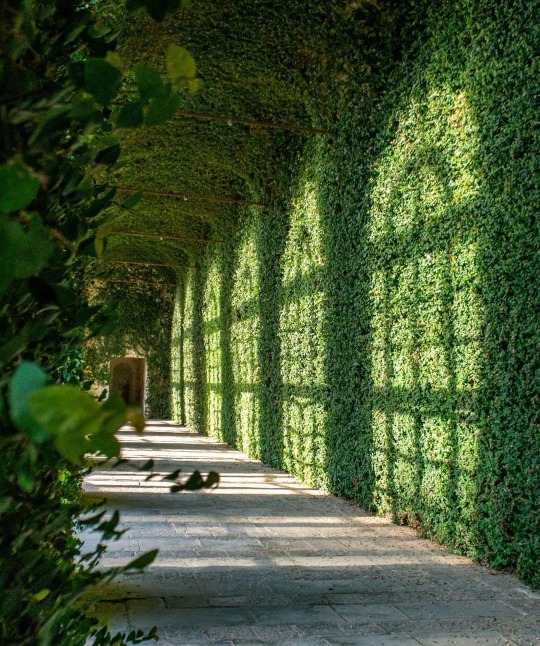#caste
Text

by stefano.pezzetta
#europe#italy#travel#travelcore#landscape#architecture#green#grennhouse#greencore#ivy#orangerie#caste#aesthetic#nature#naturecore#cottagecore#fairycore#garden#gardening#curators on tumblr#up
32K notes
·
View notes
Text
i always forget that the vast majority of people on here don't know that hinduism is a uniquely oppressive religion and view it vaguely like some exotic and beautiful brown people spirituality.
no other religion unpersons such a vast swathe of purported adherents textually, maintains practices that make them objects of ritual abjection that are excluded from society thru untouchability, exploits their labour thru customary labour obligations and restrictions on land ownership that increase their material subjection and attempts to deny them even understanding of their own position and the right to organise by making literacy itself an upper caste privilege. and this is all before the hindu fascists even burned down the first mosque and started pogroms and initiatied the process of stripping muslims from citizenship. just because hinduism doesn't have global hegemony never meant that stopped it from violently exercising its hegemony on the subcontinent.
2K notes
·
View notes
Text
Something that Americans (and also other Western people, but especially Americans) need to understand is how much US hegemony affects non americans, and how much power you guys hold over us.
The only problems we talk about are the ones that the west notices, because all of social media, and honestly, all of power, is held by America and the west. We don't talk about genocides that have been happening for centuries and problems like caste that pervade south Asian and the treatment of indigenous populations in different countries because Americans don't talk about it.
The only reason the world is noticing Palestine is because the west decided to take interest, and the only way Palestine will be free and all these problems will be brought into the world's eye is through the west's (and Americans') continued interest.
Look into these problems, talk about these problems. We wear jeans and watch American shows and eat from American food joints. The kind of soft power you guys hold is unimaginable. Use it.
#us#us politics#america#western#palestine#free palestine#caste#india#asia#talk about this#from the river to the sea palestine will be free#free congo#end caste#fuck israel#israel#yemen#i want to blaze this but im so broke#gaza#jerusalem#history#current events#world news#news
718 notes
·
View notes
Text



Stana Katic as Kate Beckett
Castle 6.08 – "A Murder is Forever"
#caste#castle abc#castleedit#kate beckett#stana katic#katebeckettedit#tvedit#userkayjay#userelliee#tuserjen#tuserjana#userhollywood#userlolo#emilyblr#kallypsos#singinprincess#fourteenthofaugust#ours#by airi
336 notes
·
View notes
Text
If you were to ever dip into the book and pay close attention to the recipes — you’d realise that most of them do not need oil. Why is that? Because, Dalits could not afford oil, and that is why we have dishes such as the steamed mutke, which is made out of jowar, garlic and coriander. Instead of oil we used beef fat. Then, there is the famous Maharashtrian dish, the rich puran poli, but the Mangs used to substitute ghee with butter milk for obvious reasons. Reading about some of the other dishes in the book would amuse someone with a sense of irony. For instance, we have been having a sort of blood pudding for ages. Lakuti is essentially cow/buffalo/bullock blood that is generally infused with a fiery masala called yesur and then boiled. We have also been practising ‘nose to tail eating’ for years. In fact, fashi, a dish made out of the epiglottis of a cow/bullock has long been a delicacy among Dalits in Marathwada. I believe foraging is the new trend in the West, and there are restaurants that take great pride in having foraged food as part of their menu. But again, centuries of deprivation made expert foragers out of us — wild leafy vegetables, bee larvae and pumpkin leaves were for a long time a part of our diet.
626 notes
·
View notes
Text
every day i scroll through the casteism tag on tumblr and it makes me want to cry because like. how can you hate us so much? after killing us, after raping us, after everything, how can you possibly hate us this much? simply because we try to climb up the social ladder. we dream of being your equals? that is our crime?
my great grandmother had to raise four kids on her own in the 50s, because her husband died in a raid. why was he part of the raid? because there was a literal law preventing him from getting a job, getting an education because apparently my people are 'criminal by nature'. but he had to feed his children. so he became what they perceived him as. he turned to crime. the people in my village were lined up and inspected on a daily basis. i can't even begin to imagine what that must have been like.
i grew up on stories of persecution. persecution of my people.you put them through that yet you hate us? simply for wanting social dignity?
198 notes
·
View notes
Text
Genuine question for the upper caste people in desiblr. Why do you think "caste is in the past"? Everytime I have seen someone confidently proclaiming that caste is a problem of a bygone era it is always a UC. You guys don't live our reality. You guys don't know the first thing about what it is like from our side. So why do you feel comfortable speaking for us? Would you like it if a British person were to proclaim that colonialism wasn't actually so bad? No? Then why is it different for us?
#rant#original post#casteism#caste#caste violence#dalit rights#india#not incorrect quotes#desi tumblr#desiblr#desi#desi tag#dalit#british colonialism#colonialism#hindublr#hinduism#hindu
176 notes
·
View notes
Text

@ vish.px
#li_destinations#wanderlust#curators on tumblr#travel#explore#caste#castles#forest#forestcore#fairytale#fairytale aesthetic#fairytalecore#foggy aesthetic
228 notes
·
View notes
Text
about the ongoing hunger strike to ensure that the historic anti-casteism bill passes in california ^^ wanna support?
if you’re on mobile, go to: https://tinyurl.com/Signsb403
other devices, like laptops: https://www.gov.ca.gov/contact/
—
sample email below from the mobile link, not my own writing:
Subject: Please Sign SB403 (Wahab) to End Caste Discrimination
I am writing to request the governor to sign the historic bill SB403 introduced by State Senator Aisha Wahab, which would end discrimination on the basis of caste. This bill aims to clarify existing California state law and make explicit that discrimination based on caste is illegal by adding caste to ancestry and defining caste in the Civil Rights Act, Fair Employment and Housing Act, and Education Code.
Caste systems are social stratification where each position is characterized by hereditary status, endogamy, and social exclusion. Caste discrimination manifests as workplace discrimination, housing discrimination, gender-based violence, and other physical and psychological forms of violence.
Caste discrimination occurs across industries, including technology, construction, restaurants, and domestic work. In these sectors, caste discrimination has included harassment, bias, wage theft, and even trafficking. Caste is today inextricably intertwined with existing legal protections in state and federal civil rights laws such that discrimination based on one’s caste is effectively discrimination based on the intersection of other protected identities. However, because of the grave discrimination caste-oppressed Californians face, these existing protections must be made explicit.
Caste is a workers rights issues, a women's rights issues, and racial justice issue. It is also a bill that has bipartisan support. That is why we are joined by Asian Law Caucus, Stop AAPI Hate, AAPI Equity Alliance, Tech Equity, Equality Labs, Alphabet Workers Union, Ambedkar Association of North America, Asian Pacific American Labor Alliance, AFL-CIO, Californians for Caste Equity, Hindus for Caste Equity, Jakara Movement, South Asian Network, Sikh Coalition, and Sikh American Legal Defense Fund. Every major legal association is in support of caste equity and the lawfulness to make caste equity explicit. This includes the American Bar Association, South Asian Bar Association, National Asian American Pacific Bar Association, and Asian Law Caucus.
That is why we urge you to make history and sign his bill without hesitation. Justice delayed is justice denied. Let's ensure California opportunity for all by ensuring that ancestry and caste discrimination is explicitly prohibited and make history across the country.
Thank You,
[Name]
—
and if you don’t know what caste is? send in an ask @bfpnola or join our Discord server, link in bio, so we can answer you in real-time!
#reaux speaks#california#united states#caste discrimination#casteism#caste abolition#bipoc#resources#labor#workers rights#intersectional feminism#anti racism#racism#history#india#caste#dalit
129 notes
·
View notes
Text
Indeed, as we shall see more fully in the next chapter, not merely the Portuguese but many early colonial administrations found it useful and necessary to manage Indians through ascriptive corporate organizations. This was true of the Dutch and the early British administration in Sri Lanka, for example. Under British rule, in 1829 the Board of Commissioners recognized that government exaction of compulsory labor-dues had “the effect of perpetuating distinctions of Castes—as long as labour is compulsory the demand for it must be regulated according to caste.”
This, I think, is an incredibly crucial idea. Castes predate and are distinct from colonial systems of control but are co-opted by them because they're so damn useful for extracting value.
87 notes
·
View notes
Text
One of the key things that I was encountering in popular discourse, as well as in official discourse, as well as in some scholarly discourse on caste, was what I would say is a liberal understanding of caste from an anti-caste position, which interestingly, and very dangerously in some way, coincided with the right-wing understanding of caste, with right-wing too thinking of themselves as anti-caste.
So I captured this as the five tropes [...] And the first one is that caste has modernized, and it's even in some way democratized because of the political ways in which previously historically marginalized castes have come in a big way into Indian politics. And so we really need not worry much about caste today, it's a thing of the past. It's also got its economic equivalent, which plays out in some kind of an argument that says, well, for an underdeveloped economy like India, caste is actually good for the growth of capitalism because you have trust when you actually make transactions and you save transactional costs. So there's a literature arguing that.
And then there's a third trope, which is what I actually focused on, which is that caste is now no longer just the hierarchy, in fact, it is not the hierarchy. It has become from a vertical into a horizontal structure, and it's just a benign difference. And this I call as the culturalization, which I'll say a little bit more about, but there are to these three political, economic and cultural tropes, I see two bookends. One is that admittedly caste exists, but it is existing in a benign, normal way. It is defined, so it exists in those cute matrimonial columns where people ask for the same caste. And so it just exists in these privatized spaces, and that really doesn't have a whole deal to dictate in terms of monopolization of wealth or inequality. It's just there.
And then on the other hand there's another bookend, which I call the brutal abnormal to the benign normal. You have the brutal abnormal, which has to admit that there are some incredible violent things that erupt from time to time, and it's only from time to time. And therefore the even more, pretty troubling word is the Atrocities Act, atrocity in some way connoting exceptional or extraordinary, whereas caste violence is ordinary violence, everyday violence. So when those things happen, it always happens in some backward part of India, not in the rest of India.
[...] And that we have to pose the question and ask the question, how does caste persist and what is the durability of caste, which then helps us understand how caste legitimizes itself. And I think in the legitimization aspect, that is where I unwrap some of the things on culturalization. So -- what indeed is culturalization?
The book is largely written against a scholarly trend that I saw, and still see, of asking us to think about the transformations in caste as an ethnicization of caste. That is, instead of a vertical hierarchy, which is what we think of when we think about caste, we are invited to consider that caste is now just about difference, it's on the horizontal plane. And so we can devote ourselves to thinking about how caste has ethnicized. Now, that to me is not at all what is happening on the ground [...] there is hierarchy, there are all kinds of inequalities, and there are appeals to fairly traditional forms of belonging, such as blood and purity and things like that. [...]
So culturalization then is really caste repackaging itself as culture. Caste in some way taking up the grammar of culture in order to present itself as benign horizontal difference/identity. And in doing that, what culturalization is is a depoliticization of caste. It is, in fact, I have even called it a counterrevolution of caste. It is the most recent form of the legitimation of caste.
Balamurli Natarajan on Recall This Book Podcast
224 notes
·
View notes
Text

The levels in this image. Just saw Ava’s new film, Origin. Prepare to learn and weep.
60 notes
·
View notes
Text
very insightful piece written in 2009 by the late gail omvedt on christianity in india, politics of conversions, dalit and tribal christians, the british empire (company and raj periods), brahminical hegemony and violence, 2008 anti-christian kandhamal massacre, jotiba phule and the dilemmas faced by dalit christian theology and the larger dalit movement.
the references at the end are a treasure for anyone interested in learning more.
79 notes
·
View notes
Text
A model woman and man are not just biological beings who can and must reproduce for caste but are both culturally and ritually constrained/coerced. An ideal woman submits to sati/ ritually being burnt on a pyre after the husband’s death or compulsory widowhood or child marriage, and an ideal man must submit to either self-imposed celibacy or grihastha with a girl-child from his caste after becoming a widower to maintain the “a numerical equality between the marriageable units of the two sexes”.
This is to constrain movements of surplus persons (produced by the death of a spouse) across castes. The suppression of the movements of body- of touch, voice and desires- are enforced to mechanize and reproduce caste. Thereby caste constructs and maintains normative gender identities in binary, suppressed bodies and hearts; caste strengthens them through reiteration; it sets up institutions for violent punishment in the case of visible subversions of its rules. Their glory transcends space and time in the forms of stories and myths for masses to mock or fear. This, as for trans persons, the misfits or subverted bodies, appear in caste-Hindu myths in their most dehumanized forms – deified or demonized, and punished.
A trans person may be criminalized for centuries, but for all that time wouldn’t give up protesting against imposed self or forced personhood – as history tells us. A trans person is a shame, a violator of the sacred mechanism of caste, a surplus human, a possible infringement whose worth transcends and counters the mechanism of caste.
100 notes
·
View notes
Text
Step into the ancient walls of Belogradchik Fortress, where history echoes against a backdrop of breathtaking natural beauty 🏰 !.
#Belogradchik#Mountains#downfalldestiny#downfall#Caste#History#Beautiful scenery#magical world#magic destinations#magic moments#Fortress#Natural beauty#Sky#epic scenery#scenery
92 notes
·
View notes
Text
The thing is, I don't give a fuck as to what the texts say. Maybe the texts advocating for the caste system wasn't actually implemented in ancient times. Maybe ancient Indian society was more fluid than what we perceive it to be. Maybe caste was actually once a societal necessity.
I don't care. I don't give a damn.
What I care about is what is happening today. The people's attitudes. The reality on the ground. The fact that many people believe that they are God's own gift on this earth and weaponise this belief to oppress others. The fact that a Dalit is one of the most oppressed and underprivileged person in this world. The fact that we are suffering. The fact that Dalit women are raped and killed by UC men and no one gives a shit, not even the police. The fact that we are accused of "politicising" every issue, bringing caste "unnecessarily" into everything but when we are raped, murdered or bullied to the point of suicide, suddenly it's not a caste issue anymore. Our suffering and our deaths are suddenly something that happens in a vacuum, divorced of everything.
So dear privileged Savarnas on desiblr, stop your unending debates about whether or not the caste system was as rigid before the British colonial rule and how being called out on your privilege once on the Internet now means you are "oppressed". These arguments matter very little when actual Dalit people are dying right now. Advocate for their basic human rights instead. And for the love of Ma Kali, acknowledge your damn privilege. Maybe you can't see your privilege because it's normalised to the point of invisibility in society, but I promise you, it is there.
Religious freedom is fine. You have a right to practice your religion and customs.
But you don't have the right to trample upon someone else's fundamental rights in the name of practising your "customs". If your customs advocates for the dehumanization of an entire class of people, then I don't give a fuck, your customs deserve to die, they deserve to be destroyed and dismantled.
youtube
youtube
#hindublr#jai bheem#dalit#casteism#desiblr#desi tumblr#desi tag#desi stuff#desi#desi culture#original post#hindu#hinduism#not incorrect quotes#caste violence#caste#india#indian politics#india politics#savarna privilege#brahminism#brahmin privilege
275 notes
·
View notes